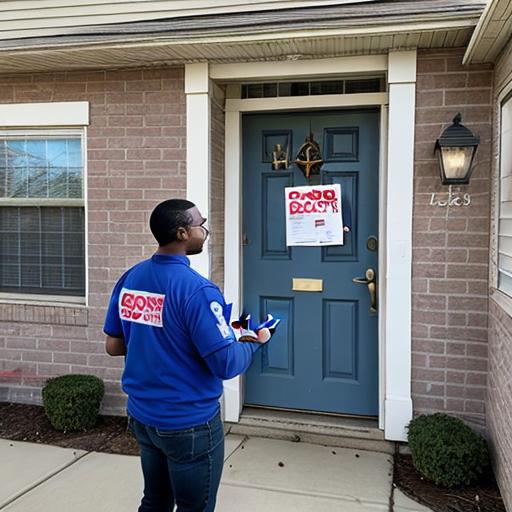In the realm of political campaigns and community engagement, building a robust ground game is pivotal to success. One of the most effective strategies within this game is mobilizing volunteers for door-knocking and outreach efforts. Here’s how you can construct and execute a powerful campaign that resonates with the community:
1. Define Your Message:
- Clarity is Key: Clearly define your campaign’s message and objectives. Volunteers should be well-versed in your goals to effectively communicate them to the community.
2. Recruitment and Training:
- Identify Volunteers: Reach out to local community groups, colleges, and online platforms to recruit volunteers. Identify individuals passionate about your cause.
- Comprehensive Training: Provide detailed training sessions. Teach volunteers about the campaign, the community they’ll be engaging with, and effective communication skills.
3. Tools and Resources:
- Technology: Equip volunteers with smartphones and apps designed for canvassing. Technology streamlines data collection and enables real-time feedback.
- Campaign Material: Prepare pamphlets, brochures, and talking points that align with your message. Engaging visuals can leave a lasting impression.
4. Organize Canvassing Events:
- Local Presence: Target specific neighborhoods and areas. Divide volunteers into teams, assigning each team a specific region to cover.
- Community Engagement: Encourage volunteers to actively listen to community members. Address concerns, answer questions, and establish a genuine connection.
5. Feedback Loop:
- Data Collection: Implement a systematic approach to gather data. Understand the concerns and preferences of the community to tailor your message effectively.
- Regular Debriefs: Organize regular meetings to discuss experiences and challenges faced during outreach. Use feedback to refine strategies.
6. Recognition and Appreciation:
- Acknowledgment: Appreciate volunteers for their hard work. A simple thank-you note or recognition event can boost morale and motivation.
- Celebrate Success: Share success stories within the team and the community. Highlight the impact of their efforts to inspire others.
7. Continuous Improvement:
- Adaptability: Stay flexible. Adapt your approach based on feedback and changing community dynamics.
- Learning from Data: Analyze the data collected to identify trends and adjust your campaign strategy accordingly.
8. Community Partnerships:
- Collaborate: Partner with local organizations, businesses, and influencers. Their support can amplify your message and extend your reach.
- Engage with Leaders: Build relationships with community leaders. Their endorsement can significantly influence public opinion.
9. Empower Volunteers:
- Ownership: Empower volunteers to take ownership of their tasks. A sense of ownership fosters dedication and accountability.
- Skill Development: Provide opportunities for skill development. Workshops on public speaking or community organizing can enhance volunteers’ effectiveness.
10. Evaluate and Adjust:
- Metrics: Establish measurable goals. Regularly assess your progress against these benchmarks. Adjust your strategies based on the results.
- Flexibility: Be willing to pivot. If a certain approach isn’t working, analyze the reasons and adapt your methods accordingly.
Building a strong ground game requires dedication, passion, and strategic planning. By mobilizing volunteers effectively, you not only amplify your campaign’s reach but also create a network of engaged community members who believe in your cause. Remember, the key lies not just in what you say, but how you make people feel – and that’s where the true power of door-knocking and outreach lies.

